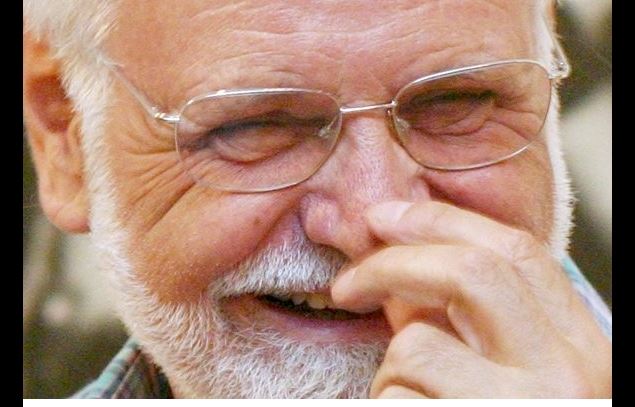Intellectual was not, or rather, he didn’t want to be. He preferred to call himself thinker or any other term that he was not so rigidly pigeonholed in a predefined category. Giorgio Simonelli defines it as “cultural animator”, to resume a typical terminology of the seventies. And that then, in a politically and socially heated context, he perfectly suited Goffredo Fofi, essayist, critic, journalist and activist Eugubino who spent today, 11 July 2025, in Rome. The 2020 documentary of Felice Pesto dedicated to him is titled Wind soles: Fofi in fact was always by train, now towards Palermo, then Turin, Rome, Paris, Naples, Bologna, Milan. It was everywhere to consider political, social and cultural work. In this Anderivate he founded and directed magazines that made the history of the twentieth century: Red notebooks, Piacenza notebooks, red shadows, shadow line, the foreigner, To remember some. He met and promoted young writers and journalists. He rolled up others, without regard. He had a very feared critical look at the cinema and one equally mild towards the limit social situations: from Palermo by Danilo Dolci to the workers’ riots of the Turin of Fiat. To outline his figure, we collected the memory of Professor Giorgio Simonelli.
Goffredo Fofi is often described as an intellectual “out of the choir”. What did this definition really mean?
«Out of the choir it was really, for several reasons. First of all because it was a type of intellectual to which we are no longer used to today. There is a word that was fashionable a few decades ago and that today seems to have disappeared: Fofi was a cultural animator. It was not just a theorist, one who wrote and reflected, but one who did. He organized courses, meetings, debates, built networks when there was still no talk of “networking”. He lived culture as a daily and collective practice. He was then a man markedly left, of a radical left, often even to the left of the PCI, who at the time was also culturally hegemonic. But regardless of ideology, Fofi had very personal, free tastes. Let’s think about his attention for Totò: an actor that the cultural left tended to snub, considering it “popular” in the lowest sense of the term. It was the most leftist critic, however, to re -evaluate it before everyone. And this can be defined as an action “out of the choir”. He wrote a book on Totò, and then, together with Franca Faldini – partner of the actor – he published The adventurous history of Italian cinemawhich remains one of the most original and human texts on the history of our cinema. It was a way of criticizing, to make stories of cinema very different from what is the line, let’s say, official. That type of cinema history was made of voices, anecdotes, testimonies. It was not built on rigid hierarchies or on abstract theories. It was a lively, affectionate, militant narrative. A very new critical operation for the time, which opened the way to a different vision of our cinema. Which was also dangerous, let’s be understood. Because in the end then, as always happens, when someone makes a nonconformist operation, he is followed by people who are not up to those who have opened the way ».
Fofi also dealt with popular culture, but with a very precise look.
«Yes, there is a very widespread misunderstanding: popular culture does not mean everything. Not everything that is successful is “popular culture”. Fofi had very clear ideas about this. Popular does not mean trivial, nor does it automatically mean mass. Popular culture, for him, was something that deserved respect and attention, but it was read with adequate critical tools. Consent was not enough to ennoble a product ».
It was also a very heated controversy ..
“Very. I still remember the debate around the magazine Red shadowsthat Fofi contributed to founding. It was a hard magazine, sharp. Attacked a certain Italian cinema in no uncertain terms. I remember for example the case of Bandits in Milan by Carlo Lizzani: he was struck down. But that radicality was in line with the time and the lesson of Pasolini, another great controversy and intellectual with which Fofi had a close, even if often conflicting dialogue ».
At the time, critics really had a huge weight in the cultural debate.
“There were at least ten cinema magazines in Italy. The cinema was central to the public debate, as social networks or TV can be today. It was the pulsating place of civil cultural life. Judging a film was therefore a political act. A critic could influence the public perception of a work, orient the debate. Today that power has evaporated. The criticism no longer affects, also because everyone express themselves, everyone says theirs, even through social networks. This is something that Fofi reveals to us: the cinema was central to public life, today it is no longer part of the debate ».
In these hours the memory of Marco Bellocchio has also arrived …
«Yes, but in reality Fofi was closer to Bellocchio’s brother, who founded the Piacenza notebooks. Even that was an extraordinary magazine, of great political and theoretical thickness. Few numbers, limited editions, but a huge cultural force. Read i Piacenza notebooks It was the tangible sign of an belonging, of a way of thinking, even very elitist ».


